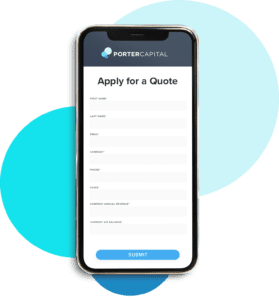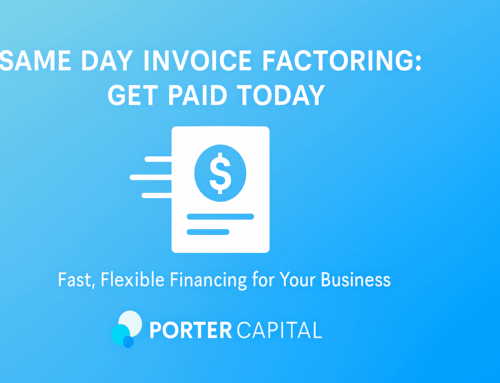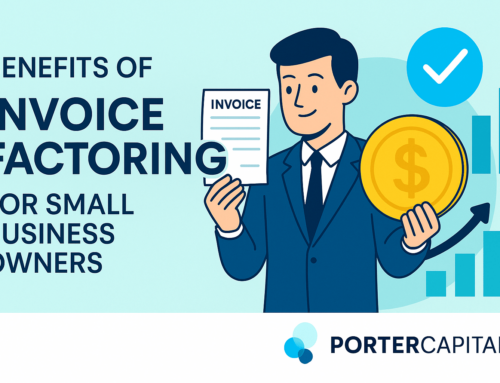As your business grows, your financial obligations will grow with it. From an expanding workforce needing payment to new equipment or facility requirements, your organization may not always have the working capital to keep up with demands.
Factoring can provide many advantages for companies that need to accelerate or maintain a steady cash flow. It allows your business to access capital tied up in invoices, enabling your company to keep up with expenses and enjoy flexibility in your growth efforts.
What Is a Factoring Agreement?
A factoring agreement is a contract that outlines the process of a business selling outstanding invoices, also known as accounts receivable, to a third party for upfront cash. The factoring process follows a few simple steps:
- A client requests products or services from your company.
- You contact your factoring company to verify whether the client’s invoice will qualify according to your invoice factoring contract terms.
- Your company delivers the products or services as requested.
- You sell the approved invoice to your factoring company and receive payment quickly.
- Your factoring company handles the collections process and sends you any remaining money owed once your client pays them and they have deducted their fee.
Factoring can benefit companies by providing them with liquid capital to meet short-term needs, such as payroll, marketing, and equipment purchases. It helps them maintain cash flow as they grow by taking on new clients or expanding their services. If your business is considering factoring, these are some of the typical contract terms and fees.
Types of Factoring Agreements
There are several different kinds of factoring agreements, and it’s important to understand how each one works before choosing one for your company. Depending on your particular situation, one may be preferable when compared to the others. The main categories of factoring agreements are:
- Recourse Factoring: In this type of agreement, the business remains liable for any unpaid invoices. This means fees are typically lower than with other types of factoring, and businesses generally can access a greater percentage of the invoice’s value. On the other hand, the liability means that if a customer is unable to pay the invoice, the business remains on the hook for that amount and may suffer a negative impact to its credit score.
- Non-Recource Factoring: The factoring company assumes the risk of unpaid invoices in this type of arrangement. This means that if the customer cannot pay the invoice due to credit issues, the factoring company takes the loss. Although this provides the business with more protection, it also means the factoring company will be much more careful about approval and the fees will be higher.
- Spot Factoring: Under this framework, single invoices are factored on a case-by-case basis, rather than in groups. Businesses can do this to avoid long-term commitments, but rates may be higher and the invoice must be large enough for the factoring company to consider it worth the risk.
Whole Ledger Factoring: This means a business’ entire ledger of invoices is factored, rather than picking and choosing individual examples. Small businesses tend to go with this option as it offers the highest potential value, but it could mean less flexibility
Common Fees & Terms in an Invoice Factoring Contract
Every factoring company has different expectations and rules, but certain fees and terms are common in factoring contracts. Understanding these terms will help you determine the best factoring agreement for your specific needs.
Advance Rate
The advance rate is what your factoring company pays you upfront. It will be a percentage of your invoice amount, usually around 70% to 90%. The percentage will depend on your factoring company, so be sure to discuss this rate when negotiating your factoring contract so you know what to expect. You’ll also want to review when this rate is paid so you can plan accordingly.
Origination Fees
When drafting a factoring contract, your factoring company will likely ask you to pay a flat-rate fee upfront. This fee is calculated as a small percentage of your total facility amount. Funds from the factoring agreement usually offset the expense.
Notice of Assignment (NOA)
You or your factoring company will need to notify your clients about the change in payment processes. A notice of assignment will keep your customers informed and ensure payments are made correctly. Any payments you receive for a sold invoice must be sent to the factor.
Benefits of Invoice Factoring
For many businesses, invoice factoring represents a good opportunity to gain access to liquid assets as quickly as possible. Rather than waiting for customers to pay their invoices, the business can add their value to its coffers nearly instantaneously and start using it. Among the many advantages of accounts receivable factoring are:
- Cash Flow Improvement: With immediate access to funds, companies can purchase new equipment, fulfill their payroll obligations, cover critical operational costs and more. Factoring makes it possible for these businesses to use their money right away to fuel growth and keep up with the competition.
- Risk Management: Many businesses prefer factoring to traditional business loans because it carries fewer risks. Companies that have dependable customers who pay their invoices on time can benefit from factoring because there’s no additional collateral required and there’s little chance of liability.
- Operational Efficiency: With factoring, much of the responsibility for managing accounts receivable falls onto the shoulders of the factoring company. This means businesses that take advantage of this free themselves from certain tasks related to collections, gaining more flexibility and agility to tackle other concerns.
- Flexibility and Growth: With much of invoice collection outsourced to the factoring company, a business has more flexibility to take on new clients and contracts without worrying about cash flow bottlenecks. This means it can focus on growing.
What to Consider When Reviewing an Invoice Factoring Agreement
Follow these tips to ensure the best chances of success when engaging with a factoring company.
1. Study the Details of the Invoice Factoring Contract
Always read the agreement in full before signing. Be aware of every fee, deadline, and expectation so you can start your business partnership on the right foot. Communicate with your factoring company to discuss the purpose behind fees, confirm payment speeds and learn the value of their different services. It might also help to review the factoring contract with a trusted partner or lawyer to ensure you fully understand the details. If there is any language that seems unclear or ambiguous, this is the time to mention it and seek clarification.
2. Understand Obligations
When you submit invoices to a factoring company, your customers pay the factoring company directly. When the factoring company collects payment, your company receives the remaining invoice amount minus the factoring fee. Work with your factoring company to create an agreement that satisfies both organizations’ needs and expectations. If you’re not careful, you could end up locked into a situation that will be longer than expected. This means you may not have the flexibility you need to accomplish your objectives.
3. Evaluate Your Factoring Company’s Reputation and Practices
Select a company that will care for your customers just as you do to ensure their satisfaction. When searching for a factoring company, assess its reputation to ensure they are reliable and trustworthy. Have a clear understanding of how they conduct business and how they plan to interact with your customers. Reviewing the terms and conditions and asking questions can give you a good idea of what to expect and whether the provider fits into how your company prefers to do business.
4. Avoid the Most Common Mistakes
In many cases, companies fail to gain the highest possible value from their factoring agreements simply because they didn’t pay attention to all the terms and conditions. This means they are caught off-guard by situations they weren’t expecting. This is why it’s critical to carefully read through the contract before signing it and making sure you understand all the terms.
Another common error made by businesses is assuming the relationships with their customers won’t be affected by the factoring process. Although many factoring companies take care to work with customers, there may be some friction if the factoring company’s approach clashes with the way customers expect business to be conducted. It’s a good idea to talk to the provider and find out how it goes about communicating with and collecting from the customers before signing the agreement. This helps ensure there is as little difficulty as possible throughout the process.
Perhaps the biggest mistake a business can make when taking advantage of AR factoring is becoming too dependent on it. Although having fast access to resources can be a tremendous advantage, it’s always a good idea to be strategic about it. If the factoring provider you choose changes its terms or shuts down operations, it could leave you holding the bag and put you in a bad position.
Factoring vs. Traditional Loans
When funding your business’ growth, you may be faced with the choice to use factoring or apply for a traditional business loan. As you weigh your options, it’s best to keep these factors in mind:
- Approval Processes: Loans often feature a lengthy application and approval process, and they are dependent on your business’ credit score. By comparison, factoring provides faster approvals and doesn’t depend as much on credit scores.
- Repayment Structures: Choosing a business loan means your business will need to comply with the terms set by the lender, including strict schedules for payments and compounding interest. But if you decide to go with accounts receivable factoring, you may only need to pay the fees specified in the contract. This means you won’t have to worry about making further payments as long as your customers pay their invoices on time.
- Collateral Requirements: Factoring uses only your invoices as collateral, which helps preserve your other assets including equipment and property in the event of a customer’s non-payment. If you choose a loan, however, you may need to put up other assets as collateral. This means you may be at risk of losing things your business needs to survive, putting you at serious disadvantage.
- Risk Management: While loans can create additional debt for companies that can ill afford it, factoring provides small businesses with a less-risky way to gain access to the funding they need for future growth.
In short, businesses may find factoring to be the better choice when compared to traditional loans. For example, if your company has customers who take longer to pay their invoices than you would like, factoring can provide you with a steadier cash flow.
Contact Porter Capital for a Contract Factoring Quote Today
If you’re ready to begin factoring your invoices , Porter Capital can help. We have more than 30 years of experience working with businesses of all sizes and across multiple industries, enabling them to enjoy faster cash flow, stable growth and a competitive edge. We will help you find the best solution for your specific needs.
With advances up to 90% on each invoice, competitive rates and flexible financing solutions, your company can receive the cash you need to grow when you work with Porter Capital. Contact us online today to receive a quote for our factoring services.





